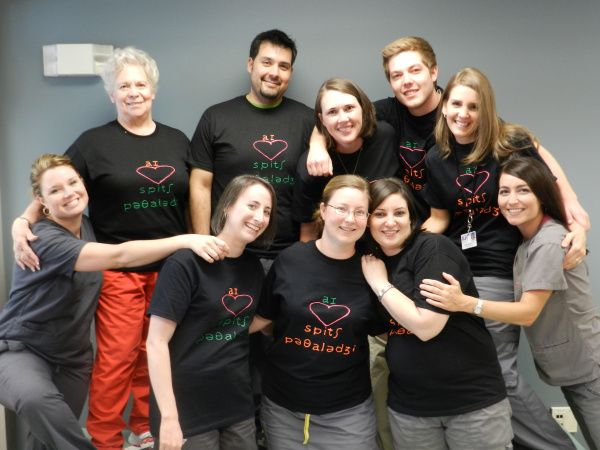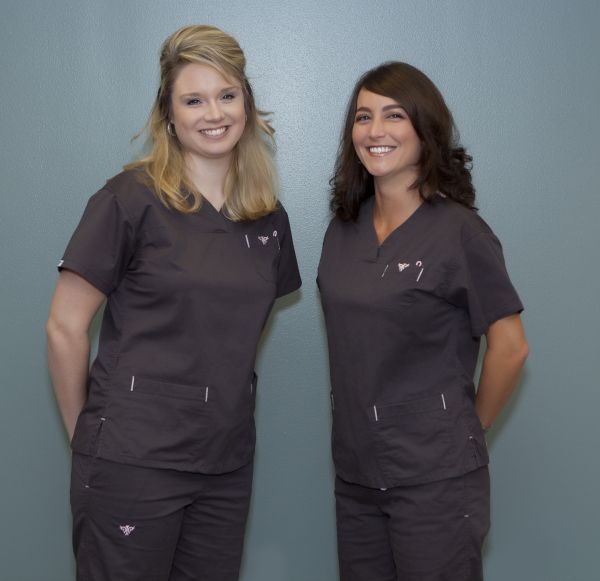~May is Better Hearing and Speech Month~
We would like to recognize our speech therapy department here at LaSalle General Hospital and say THANK YOU for all you do for the hospital and your patients! Pictured above are:
Rosalyn Hall, SLP and Amanda Greer, M.S., CCC-SLP
Speech Language Pathologists (SLPs) can evaluate, treat, and help prevent communication disorders and other specific impairments with individuals of all ages. SLPs can work in a wide range of settings. Clinical environments may include: public and private hospitals, skilled nursing facilities, long-term acute care facilities, hospice, home health, and school settings.
Acommunication disorderis impairment in the ability to receive, send, process, and comprehend concepts or verbal, nonverbal and graphic symbol systems. A communication disorder may be evident in the processes of hearing, language, and/or speech. A communication disorder may range in severity from mild to profound. It may be developmental or acquired. Individuals may demonstrate one or any combination of communication disorders. A communication disorder may result in a primary disability or it may be secondary to other disabilities.
Aspeech disorderis an impairment of the articulation of speech sounds, fluency and/or voice.
Anarticulation disorderis the atypical production of speech sounds characterized by substitutions, omissions, additions or distortions that may interfere with intelligibility at the word, sentence, or conversational levels of speech.
Afluency disorderis an interruption in the flow of speaking characterized by atypical rate, rhythm, and repetitions in sounds, syllables, words, and phrases. This may be accompanied by excessive tension, struggle behavior, and secondary mannerisms.
Avoice disorderis characterized by the abnormal production and/or absences of vocal quality, pitch, loudness, resonance, and/or duration, which is inappropriate for an individual’s age and/or sex.
Alanguage disorder is impaired comprehension and/or use of spoken, written and/or other symbol systems. The disorder may involve (1) the form of language (phonology, morphology, and syntax), (2) the content of language (semantics), and/or (3) the function of language in communication (pragmatics) in any combination.
Form of Language
Phonologyis the sound system of a language and the rules that govern the sound combinations.
Morphologyis the system that governs the structure of words and the construction of word forms.
Syntaxis the system governing the order and combination of words to form sentences, and the relationships among the elements within a sentence.
Content of Language
Semanticsis the system that governs the meanings of words and sentences.
Function of Language
Pragmaticsis the system that combines the above language components in functional and socially appropriate communication.
Communication Variations
Communication difference/dialectis a variation of a symbol system used by a group of individuals that reflects and is determined by shared regional, social, or cultural/ethnic factors. A regional, social, or cultural/ethnic variation of a symbol system should not be considered a disorder of speech or language.
Augmentative/alternative communication systems attempt to compensate and facilitate, temporarily or permanently, for the impairment and disability patterns of individuals with severe expressive and/ or language comprehension disorders. Augmentative/alternative communication may be required for individuals demonstrating impairments in gestural, spoken, and/or written modalities.
Dysphagia is a swallowing disorder that may be due to various neurological and/or structural impairments. Dysphagia most often reflects problems involving the oral cavity, pharynx, esophagus, or gastro esophageal junction. Dysphagia can cause food to enter the airway, resulting in coughing, choking, pulmonary problems, aspiration or inadequate nutrition and hydration with resultant weight loss, failure to thrive, pneumonia, and possible death.
If you recognize any of these problems and would like more information please contact our knowledgeable speech department at LaSalle General Hospital at (318)992-9200 Ext 2270 or contact your physician for more information.
We love the support that our therapy departments show one another. Pictured below are the OT and PT department in the shirts they made in support of our Speech Therapists!!


